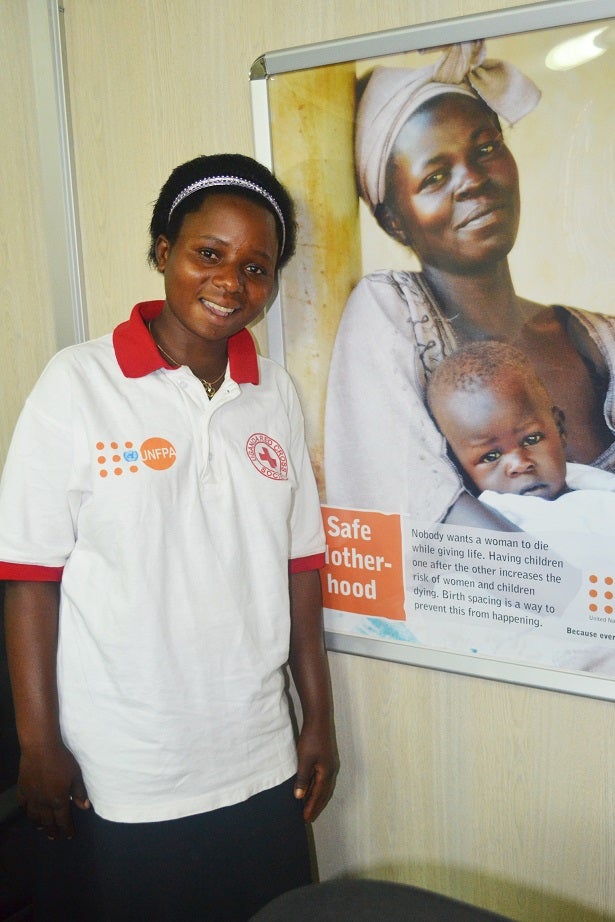Phoebe, a former student at the Kasambya Parents School in Mubende District, got pregnant and was forced to drop out of school after her girlfriends misinformed her about sex. "I felt so bad and my parents wanted to kill me," Phoebe confides. "Luckily, a teacher from my school helped me break the news to my parents. The teacher also told them that I could go back to school after giving birth."
Phoebe is one of the ten girls who got pregnant but were able to finish school after delivering thanks to UNFPA and the (URCS). Usually, teenagers like Phoebe have little or no knowledge of health centres or are reluctant to attend a health centre or community because the approach towards young people who ask for information about sexual and reproductive health can be unfriendly, stigmatizing or even intimidating. In 2011, when the programme started focusing on building capacity on youth friendly services, 80 ‘youth friendly corners' (YFC) were set up nation-wide in schools, health facilities and communities such as youth groups or worksite groups. These youth corners are more accessible and attractive to young people since they are manned by health workers who are trained in youth friendly services as well as by peer educators.
In the YFC, young people receive information and services and they can interact with others. Teachers are also trained to reach out to the parents to counsel them to prevent tension in the household. "My teacher Cissey told me to respect my parents, not to listen to other girls who tease me. She also encouraged me to study and finish my school," Phoebe states. "I wish the topic is more discussed at school so that girls do not make the mistake I did," she adds.
The youth corners are effective in providing information and services that help prevent them from getting pregnant and therefore reducing the chances of them dropping out of school.


